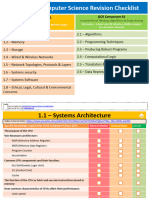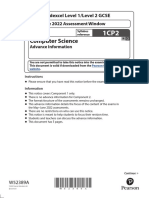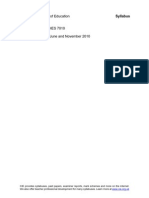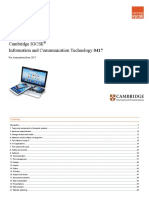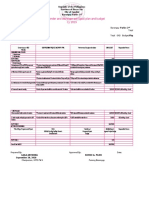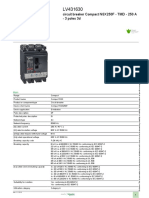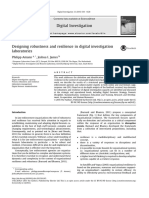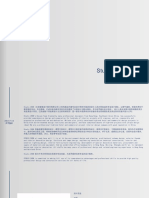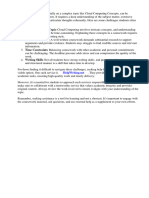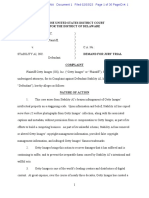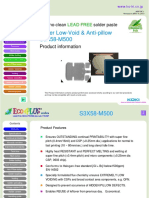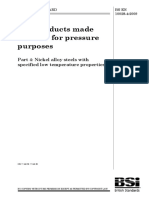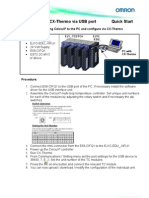Oxford Cambridge and RSA Examinations
Computing – Student Guide for Advanced Subsidiary/Advanced GCE Specifications
The overall aim of these specifications is to encourage The modules you will study for AS are:
you to develop an understanding of the principles of
problem solving using computers. Your studies will Module 2506: Introductory Computer Systems,
help you to understand the range of applications of Communications and Software
computers and the effects of their use so that you can
apply this understanding to develop computer-based This is the foundation for all subsequent modules. It
solutions to problems. You will develop an provides you with an understanding of the core
understanding of systems analysis and design, and aspects of computer systems, which is developed and
methods of implementation, testing and documentation. enhanced in subsequent units.
Before you start this course Module 2507: Structured Practical Computing Tasks
It would be helpful if you have studied either This module provides you with opportunities to apply
Computing or Information Technology, although this is skills, knowledge and understanding from Modules
not essential. It is probable that you will have 2506 and 2508 in a practical way. Work on the
achieved some success at GCSE or equivalent structured tasks will probably be carried out at the
qualification level. same time as your work on Module 2508, allowing you
to apply the relevant theoretical material from Module
A qualification in Computing combines well with many 2508 to the appropriate exercise from Module 2507.
subjects including any subjects that would benefit
from a logical and systematic approach. It also The structured tasks examine separately the different
complements subjects that contain analytical, scientific phases in the development of a computer-based
and technological aspects. system. Thus they will prepare you for the Computing
Project, in the second half of the Advanced GCE, which
With a qualification in Computing you could go on to requires the integration of these elements in response
Higher Education or work in one of the many to an identified need. One or more tasks require the
vocational areas servicing a world increasingly use of a computer system in their solution: in such
dominated by the use of computers. cases, you may choose a solution based on the use
of a programming language or an appropriate
This subject is made up of 6 modules of teaching and applications package.
learning, which will be assessed in 6 units of
assessment. Module 2508: Computer Systems Development and
Practical Applications
To get a certificate for Advanced Subsidiary GCE, you
will need to have studied for and been assessed on This module provides you with opportunities to apply
your performance in 3 AS units. the skills, knowledge and understanding of computing
concepts gained in Module 2506 to a range of
To get a certificate for Advanced GCE, you will need applications in which computer systems are used.
to have studied for and been assessed on your
performance in 3 AS units, together with 3 A2 units. These 3 modules of teaching and learning, assessed in
their associated units of assessment, form the
Advanced Subsidiary GCE qualification.
�The modules you will study for A2: Module 2510: Computing Project
Module 2509: Systems Software Mechanisms, In this module you will need to identify a well-defined
Machine Architecture, Database Theory and user-driven problem, involving a third-party user, and
Programming Paradigms to generate a solution. As for Module 2507, this is
done using your choice of software tools and may
This module will extend your knowledge and include a programming language, an appropriate
understanding of concepts related to computer applications package or other software. Your work on
systems. Some concepts previously encountered in the Project will begin in parallel with work on Module
Modules 2506 and 2508 are developed in greater 2509.
depth, while some new concepts are introduced. In
addition, applications based on information provision Module 2511: Integrated Information Systems
are covered in this module.
This module applies and extends your knowledge
of systems and data and the development,
implementation, and management and applications of
systems. The module covers the applications of
real-time computing and simulation.
The assessment structure for Computing is:
Unit 2506: Introductory Unit 2507: Structured Unit 2508: Computer
Computer Systems, Practical Computing Tasks Systems Development and
Communications and Practical Applications
Software + Board-set practical tasks. + = AS
1/
1 hours examination: structured
2
11/2 hours examination: short questions.
answer questions.
Unit 2509: Systems Unit 2510: Computing Unit 2511: Integrated
Software Mechanisms, Project Information Systems
Machine Architecture,
Database Theory and + Extended practical work to solve + 11/2 hours examination: structured = A2
a computing problem focused on questions on short scenarios.
Programming Paradigms
end user requirements.
11/2 hours examination: structured
questions.
For more information, please view the OCR website: www.ocr.org.uk
or contact OCR Information Bureau 01223 553998 at OCR Head Office, 1 Hills Road, Cambridge CB1 2EU.























